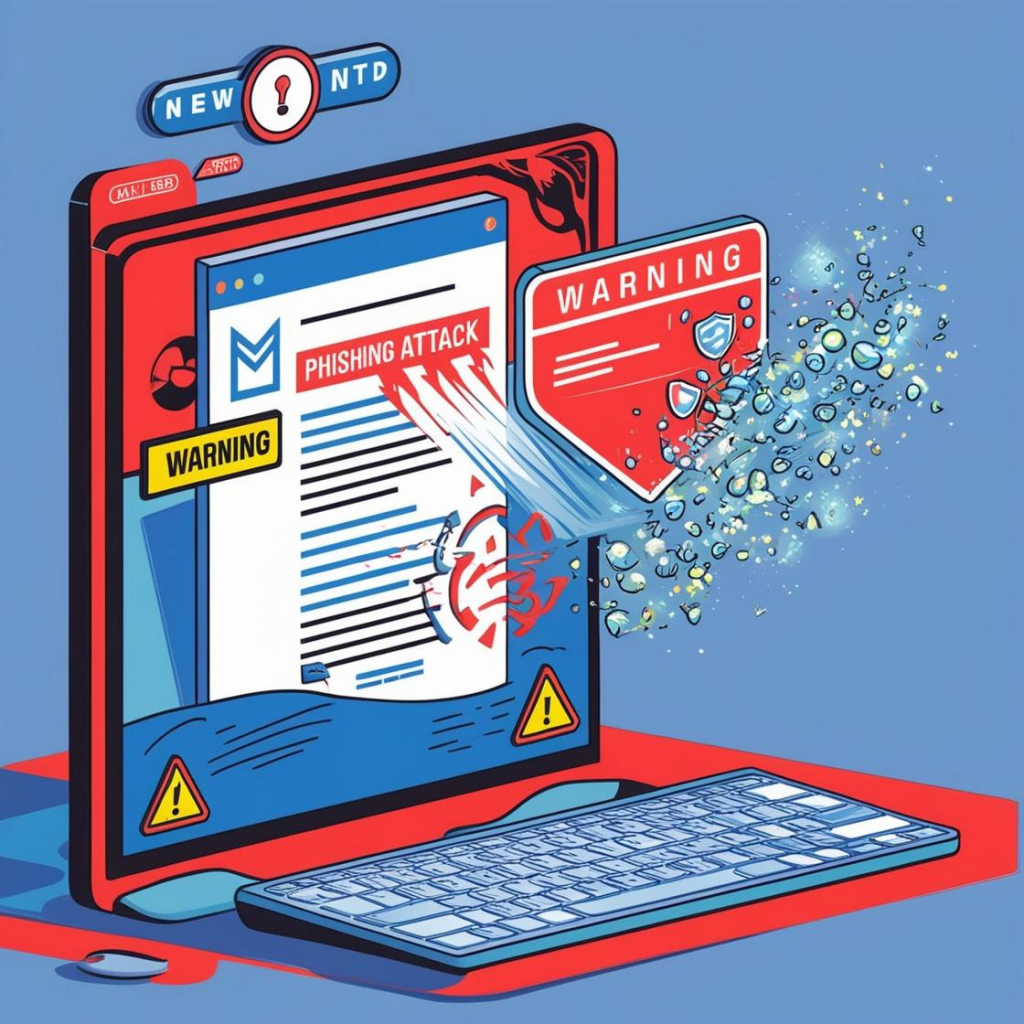Phishing Attacks in the Banking Sector
As technology that affect every aspect of society It has made it possible to perform financial transactions swiftly through the internet. Banking services, one of the industries that are the most technologically advanced and have shifted their offerings into online applications to be able to react quickly to the needs of both individuals as well as commercial enterprises and increase their share of the market space within the current economic climate. Although this technology has many benefits, it also has opened up new opportunities for criminals. This is why the new attacks on phishing are designed to find the passwords of the target individual, and also to gain details about banks, including debit and credit card numbers.
Once scammers have obtained people’s financial information via fraud, they’re in a position to use the information to get money from compromised accounts. To hide the tracks of their criminals, they seek to recruit unwitting people to serve as intermediaries, by posting appealing job advertisements on the web, promising the opportunity to earn quick money with little effort.
The accounts of those who respond to these advertisements are used to facilitate payments from accounts that have been compromised. People who have responded to advertisements will be then requested to withdraw money from their accounts and send it to scammers via an internationally-based money transfer service after deducting commissions. Scammers will therefore be able to keep their anonymity, while those who respond to ads leave an identifiable trail that could be monitored by law enforcement authorities.
Be wary of job offers that demand the release of money into an account at a bank as a payment for commission. The scammers who hire phishing victims commit money laundering and are likely to be prosecuted criminally.
Information stolen via phishing:
- Credit and debit card numbers/CVV2
- Passwords and Keywords
- Account numbers
- Passwords and user IDs are that are used to sign in into Internet Banking sites
Find out more about the most frequent bank scams and how to safeguard yourself.
1. Overpayment Scam
If you offer products or services on the internet, you could be the victim of scams involving overpayment. Overpayment scams typically start when someone mails you fake checks or a money order that is more than what you have to pay. They then ask you to put the money at the bank, and then pay the remainder back to you.
However, since the check is fraudulent it could be liable to the bank a fee to get refunding the check. If you also delivered the check and not the item is not returned, you’ll also lose all the money you given them.
2. Check Cashing Scams
Another scam that is related to checks is the cashing of checks scam. This scam feeds off the generosity and compassion of others. A person outside of the financial institution may call you and ask if you are able to cash checks for them. They might claim that they don’t have an account at the bank, but they require the cash.
To pay someone for the amount, pay the check in cash and then withdraw funds from your bank account. The process of cleaning can take several days. So, if the check isn’t cashed, the money is stored within your checking account.
3. Spam Check Fraud
Did you receive a check through your mail, which you didn’t anticipate? It could look like an offer for a discount or refund for an overpayment. Check the check from beginning to end, and note any small printing on the back or the front. There is a chance to make an legally binding agreement by paying the check and signing it. Fraudsters employ techniques like this to convince you to sign up for memberships, loans, or other long-term commitments that may cost you money.
Scammers are counting on you to believe the check as a free gift and then pay it. Be cautious about paying cashback or discount check that you did not expect to receive.
4. Automatic Withdrawal Scams
Automated withdrawals are an excellent method to automate the savings process, make payments on for bills and much more. Fraudsters also love automatic withdrawals however, they do so for different reasons.
The way in which this scam operates is that the victim receives an email or phone call informing them that they have won an award or are eligible for a specific deal. The intention is to force you to look up the numbers that appear on the check’s bottom. This is often used as a method to confirm that you’re eligible to take advantage of the promotion.
Once the scammer has received your bank and check numbers They then put it in the draft request. The draft can be processed as an actual check, but doesn’t require signature. Once you have received the draft the bank will then transfer money out of your bank account in order to compensate the fraudster. If you do not pay focus on your daily banking and transactions, you might not be aware of the scam until it’s too late.
5. Phishing Scam
Through phishing, scammers make use of emails and texts to trick people into giving their personal details. The information they seek include passwords, Social Security numbers, account numbers, and many more. Their goal is to gain access to your personal accounts like bank accounts, email accounts, as well as other accounts with financial value.
6. Government Fraud Scam
Another bank scam that is commonplace is a person who pretends to be an official from the government. You get a message from the scammer claiming you have won something which requires the payment of fees or taxes before they are able to process the prize. The scammer might warn you that they will send you to jail if don’t pay off the debt he claims to be outstanding. Truth is you won’t ever get a phone message by a government agency requesting the payment.
Scammers are able to use the names of a fake federal agency like for instance, the National Lottery Bureau. It’s either way it’s a fraud because this isn’t a method employed by federal agencies for collecting payments.
7. Charity Scams
Scammers are also known to make money off of kindness by pretending to be charities. They are looking for those who are looking to donate to a cause or charity. Some scammers go as that they conceal the number so that it is listed as the number of the nearby area on the caller ID.
Sometimes, you can identify fraudulent philanthropy from the vague statements they make, and the absence of concrete methods your contributions are utilized. Scammers often make up fake names that appear like legitimate charities.
8. Employment Fraud
Employment fraud is another popular method scammers use to access people’s financial accounts. Scammers promise the promise of guaranteed work in exchange for an upfront cost. They might also request the bank account details in order to transfer commissions to you. But, this is only an attempt to obtain the information about your bank account.
Scams for business usually occur via email, however scammers can also contact people by phone or mail. In some instances the job sites may not be aware of or support job advertisements that are subsequently discovered to be fake.
How to protect yourself and your Accounts from Fraud ?
- Don’t cash checks to help other people. You may wish to help others, but do not make a payment unless you are familiar with the person very well.
- Read and research every single word. Always read the small print regardless of whether it’s an emailor text or any other way. If something seems suspicious or too appealing to be real, it most likely is.
- Don’t divulge private information with anyone. If you share the correct details, fraudsters can gain access to nearly every aspect that you do. It can even steal your identity and other financial accounts. Do not divulge accounts numbers, Social Security numbers, credit card numbers as well as passwords, with anybody, unless you’re familiar with the person, or are certain it’s a legitimate request.
- Avoid high-pressure sales strategies. Do not accept sales that require you to make a decision quickly without looking over the small print.
- Avoid paying for fees. If an job, offer or award advertisement that requires an the payment in advance is made public and is not paid in advance, it could be a fraud. Similar applies to solicitations from unknown sources which require bank account information to access or use them.
- Have an axe to grind. If you believe you’re the victim of a fraud you should report it to the appropriate authorities. If you suspect that you’ve been victimized by a fraud Your financial institution must provide you with a method to lodge the appropriate complaint. How much of the financial obligation could be contingent on the bank’s policies and the kind of account you have.
- Use your best judgment. If something isn’t appropriate to you regardless of whether you are giving out your personal details or clicking on the link to an email, do not move forward. If you’ve never had any phone calls about it previously, ask yourself the reason you’ll receive a call right now.




